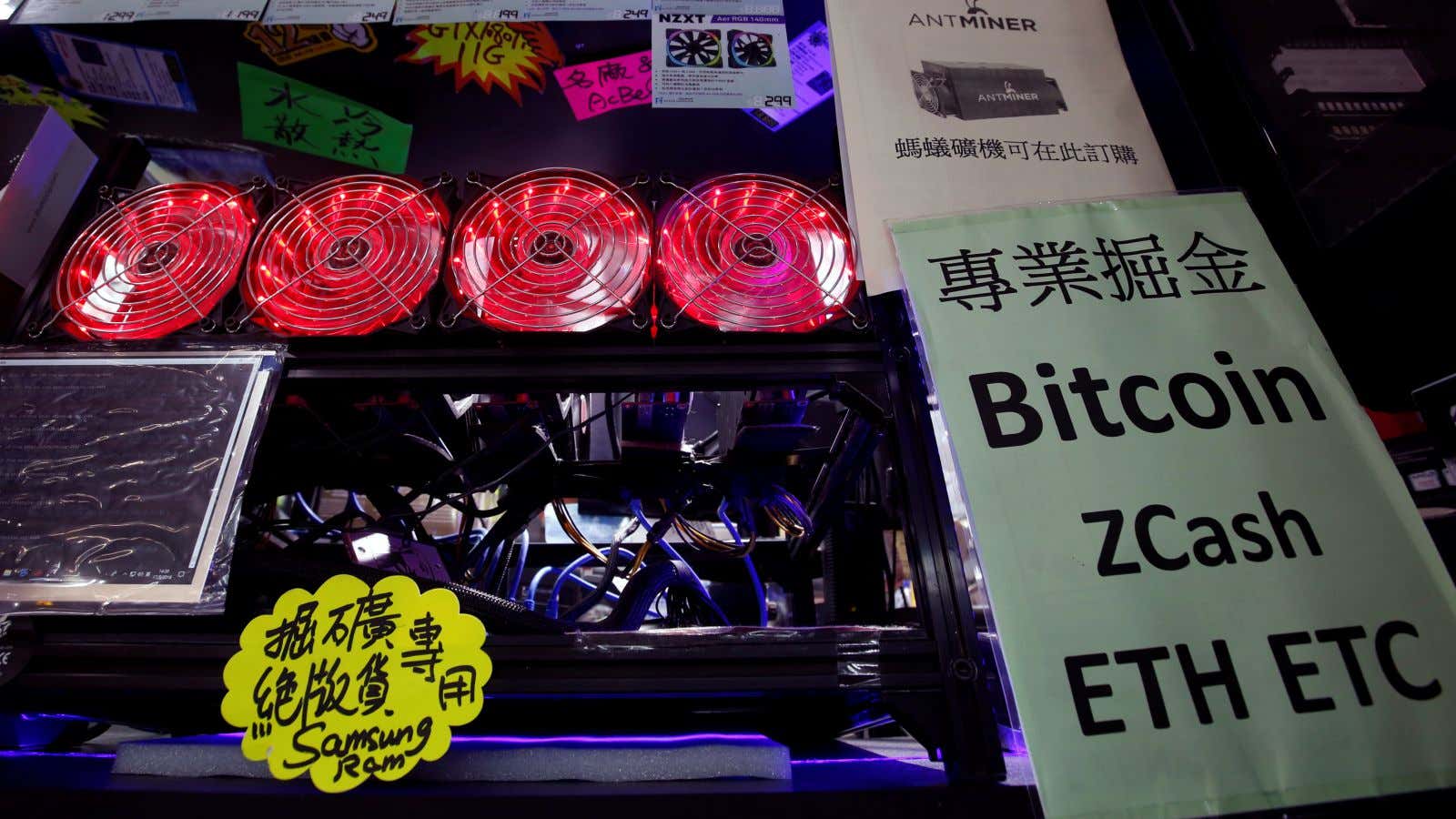The Indian government may be one step closer to clearly spelling out its policy on cryptocurrencies.
A finance ministry panel set up in November 2017 could be ready with draft regulations next month. This was clarified by the Narendra Modi government in a counter-affidavit, a copy of which has been reviewed by Quartz, filed in the supreme court on Nov. 19. India’s top court is hearing a case filed by a clutch of cryptocurrency exchanges who have accused the government and the central bank of choking the ecosystem.
The finance ministry panel, tasked with drafting the norms for virtual currencies, is headed by Subhash Chandra Garg, a top civil servant, currently a secretary in the department of economic affairs. In the following weeks, the committee is expected to discuss the issue further, the government’s counter-affidavit said.
“…currently, serious efforts are going on for preparation of the draft report and the draft bill on virtual currencies, use of distributed ledger technology in (the) financial system and framework for digital currency in India. The draft report and bill will be circulated to members of IMC (inter-ministerial committee). Thereafter the next meeting of IMC will be held so that discussion can take place on the draft report and bill. It is expected that the draft report will be placed before the IMC by next month.”
The next two meetings of the Garg panel, to be held next month and in January 2019, will deliberate the draft report, and the provisions of the draft bill on virtual currencies, the government’s counter-affidavit said.
The case filed by the bourses is expected to come up for hearing by a bench comprising justices RF Nariman and Navin Sinha in the supreme court today (Nov. 20).
The debate
In April this year, the Reserve Bank of India (RBI) had asked all lenders in the country to wind up their business relationships with virtual currency exchanges within three months. Severely impacted by the move, the bourses had then dragged the RBI and the Modi government to court in the following days.
When the matter finally came up for hearing on Oct. 25, the court asked the government to file a counter-affidavit and outline its policy regarding virtual coins, which is still being formulated.
The counter-affidavit filed by the government also mentions that the inter-ministerial Garg panel held two meetings—on Nov. 27, 2017, and Feb. 27 this year. Consequently, several other informal meetings and discussions have also been held to further understand the ecosystem.
It was mandated to submit draft regulations by July this year but it has been delayed. Garg had earlier stated that regulations on cryptocurrencies are likely by the end of March next year.
Besides Garg, panel members include BP Kanungo, deputy governor of the RBI, and Ajay Tyagi, chairman of India’s market regulator, the Securities and Exchange Board of India (SEBI). This is besides representatives from the ministry of electronics and information technology (MeitY) and central board of direct taxes (CBDT).
Second attempt
Prior to the Garg committee, the government had constituted a task force in March 2017 to suggest a framework to regulate digital coins. It was headed by a top bureaucrat serving as the special secretary for economic affairs.
Though the complete suggestions of the task force were never made public, it had recommended insulating investors from the risks of trading in bitcoin and its ilk.
“It was recommended in this report that warnings should be issued to the effect that cryptocurrencies are not coins or currencies, and for consumers to stop trading in these currencies. It was also recommended to take appropriate action for consumer protection by enforcement agencies in relation to such trading. It was further recommended that another committee be constituted with members of DEA, RBI, SEBI, Department of Revenue, Department of Legislative Assembly, DoCA (Department of Consumer Affairs) and MeiTY to suggest further course of actions.”
The task force had also recommended choking the exchanges, instead of banning them, to protect investors, officials had told Quartz earlier.
Its report was attached as a part of the Nov. 19 counter-affidavit, albeit in a sealed envelope, indicating the government’s discomfort in making public its stand on the issue.
“Typically, if a document is supposed to be too sensitive or if they don’t want the contents of it to be made public for certain reasons then in such cases the information can be submitted in sealed envelopes and only the court remains privy to it.” a lawyer explained to Quartz, requesting anonymity.
Want to read more from Nupur Anand? Subscribe to Quartz Private Key—Quartz’s premium crypto newsletter, delivered twice weekly.
